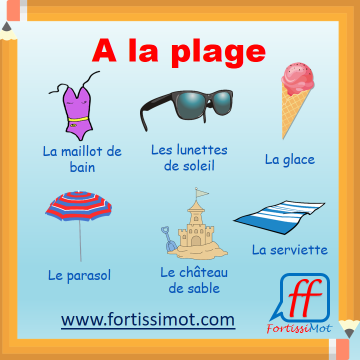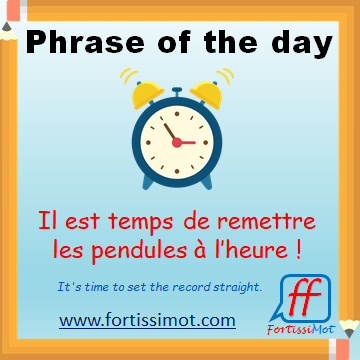Noms des repas
Did you know? The names of meals vary across French-speaking countries!
If you’re invited to “dîner“, be careful not to get confused: in Belgium, Switzerland, and Quebec, it refers to lunch, whereas in France, it means dinner!
And that’s not all! The word “déjeuner” means breakfast for some, while for others, it refers to lunch.
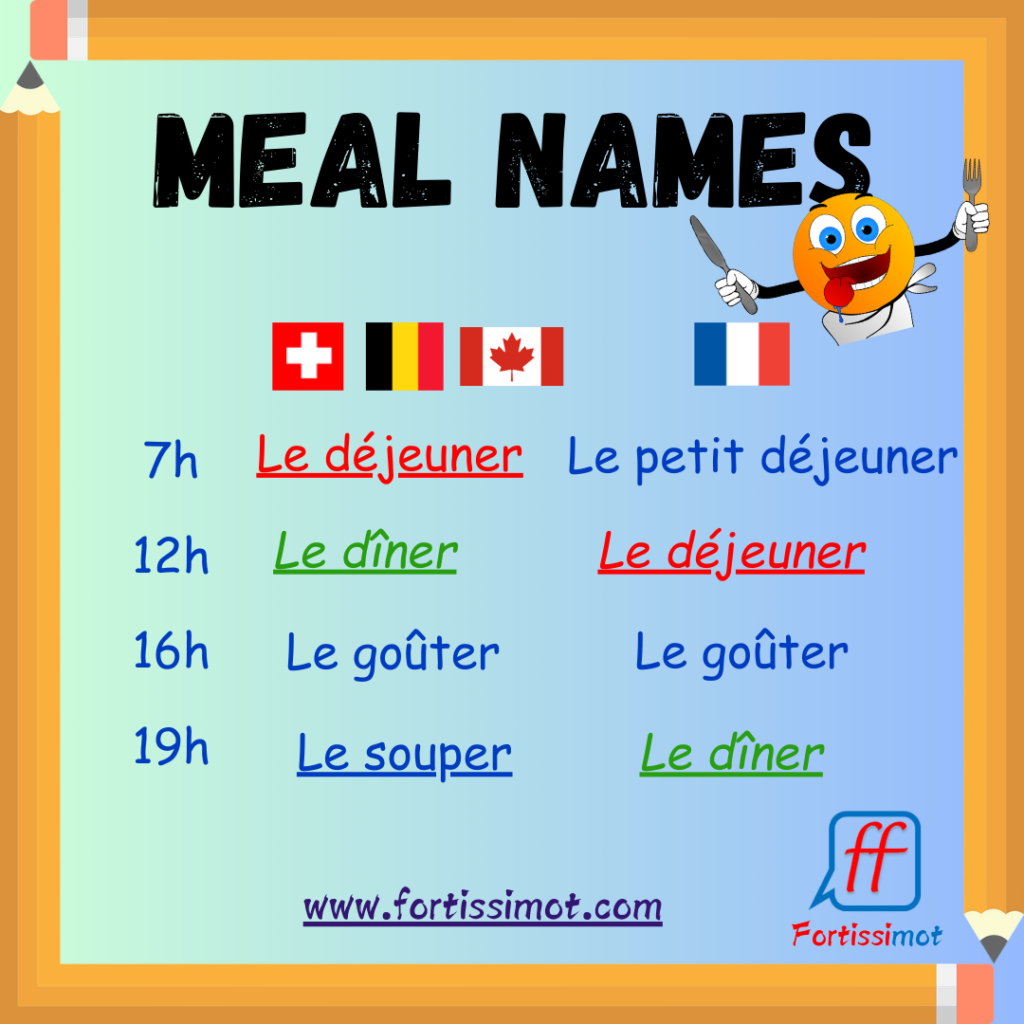
Petits noms tendres
Valentine’s Day is approaching! Let’s take this chance to learn some sweet French nicknames:
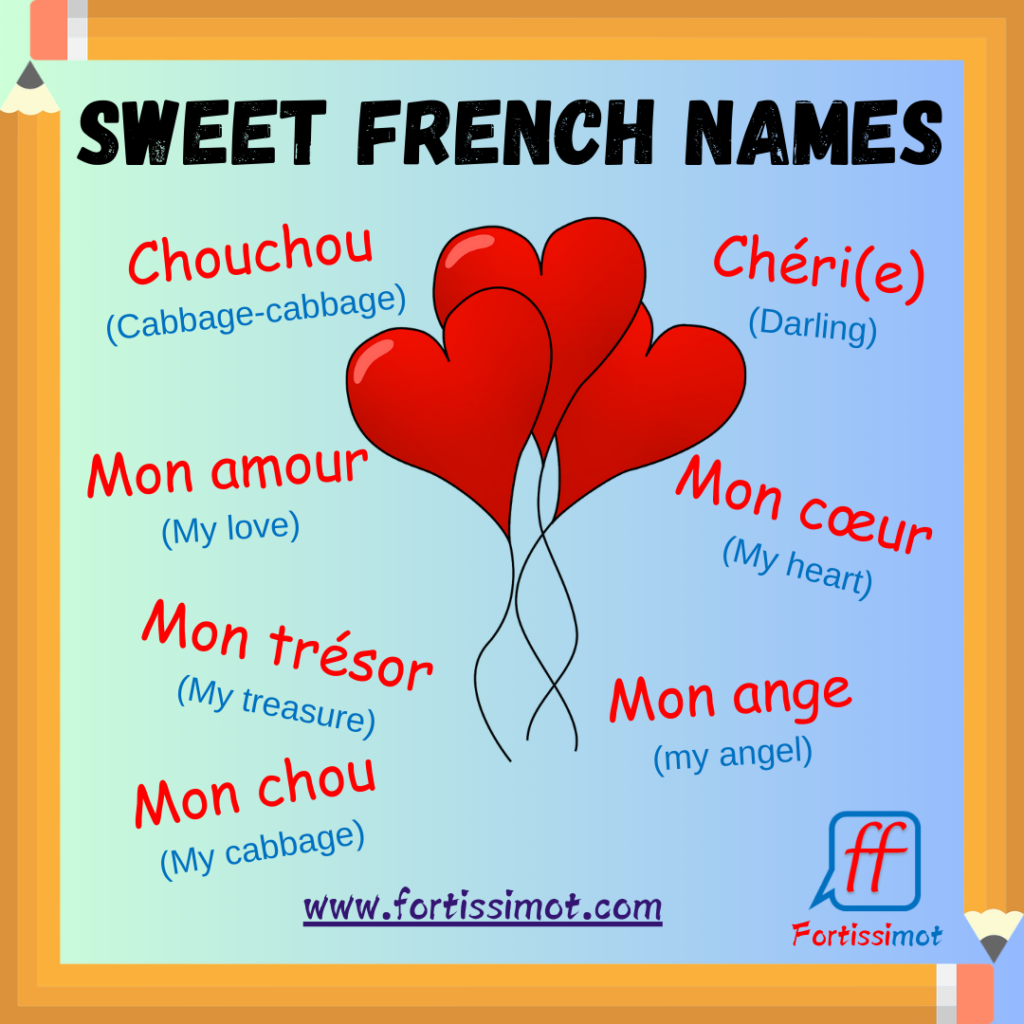
Les échos du vin
The grape harvest is over. Now let’s move on to expressions about wine. Here are a few.
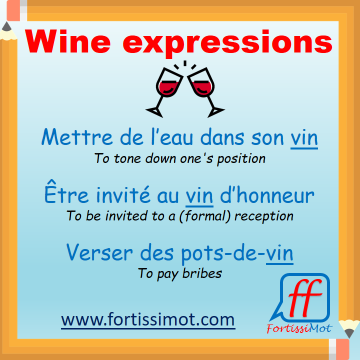
A few sentences to help you understand:
- Pour éviter les conflits, elle a décidé de mettre de l’eau dans son vin et de faire des compromis.
- Nous sommes ravis d’être invités au vin d’honneur de leur mariage.
- Il est accusé d’avoir versé des pots-de-vin pour obtenir le contrat.
Les couleurs de l’automne
Enjoy the vibrant colors of autumn and be mindful not to make mistakes when agreeing color adjectives:
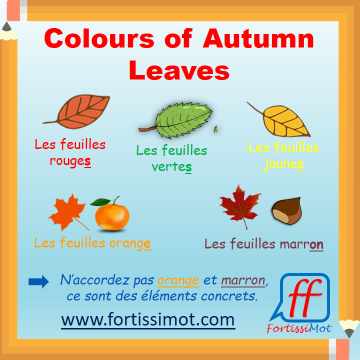
The colors ‘orange’ and ‘marron’ are invariable adjectives because they represent concrete elements: an orange and a chestnut.
Les matières
Out of all these subjects, which one have you studied, and which one did you enjoy studying the most?

Faux-amis français/espagnol
Despite their similarities, French and Spanish have numerous false friends. Be careful when you speak to avoid any misunderstandings.
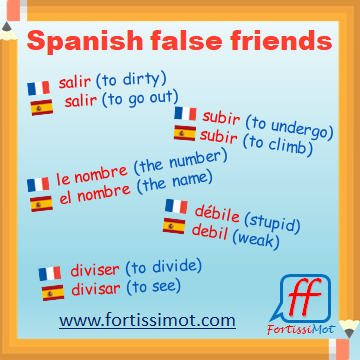
Vocabulaire de la plage
Here are some vocabulary words if you get the chance to spend your vacation by the sea:
